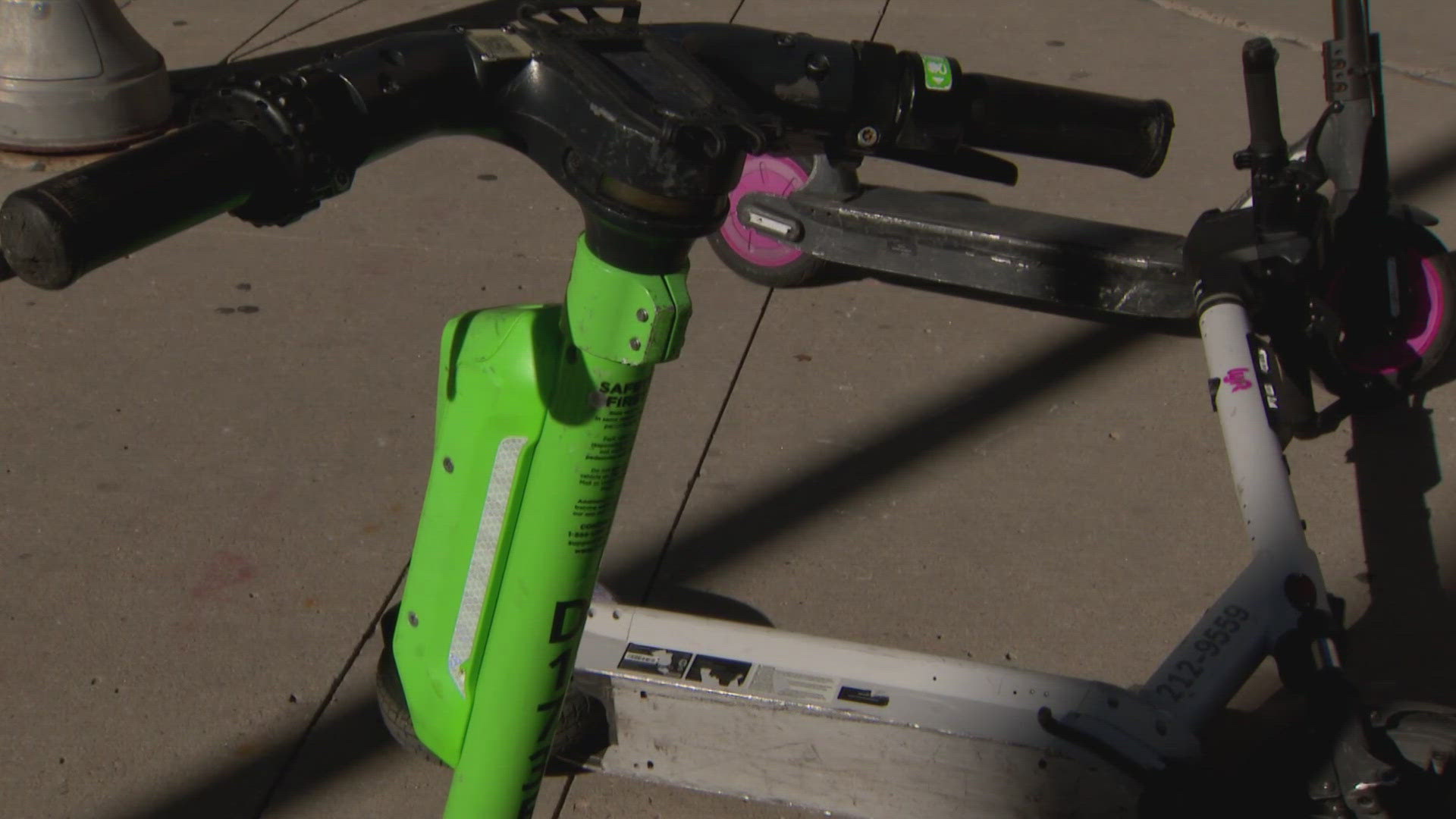DENVER — A Colorado cyclist’s long legal battle after a life-altering crash essentially has come to an end with a court ruling in favor of the electric scooter company Lime. On Thursday, the Colorado Court of Appeals ruled that scooter companies cannot be held liable for injuries caused by their riders.
“They just hit me head-on, and my bike went up and over the curb, and I fell back into the bike lane,” Josie Harrington said.
The crash occurred in 2020 during Harrington’s daily commute on 14th Street near California Street in downtown Denver. She was riding in the bike lane when a scooter rider, who she said appeared intoxicated and was traveling in the wrong direction, collided with her.
Harrington suffered serious injuries, including a broken clavicle, a fractured radial bone, severe whiplash, and permanent muscular issues such as tendonitis. Recovery took years, with two and a half years of physical therapy and a total of $100,000 in medical bills. She estimates losing an additional $60,000 to $80,000 in wages due to missed work.
Harrington sued Lime for negligence, arguing the company failed to take adequate steps to ensure its riders operated scooters safely. The court ultimately ruled there was no legal basis requiring scooter companies to protect others from their users’ behavior.
“A company that rents electric scooters to third parties does not, by that act alone, owe a duty to the public to protect against injuries caused by users of its scooters,” the court wrote in its decision.
Lime's response
In a statement, Lime expressed appreciation for the court’s ruling, saying it affirms "that users of rental vehicles are responsible for safe and proper use, in adherence with respective terms and conditions, rather than rental companies.”
The company added, “Lime makes it a priority to educate its riders on how to ride safely and encourages safe behavior on our vehicles.”
Harrington, however, believes the company and local authorities could do more. She noted that while Lime has implemented additional rules since her crash, she frequently sees riders flouting those rules.
“They do have the technology that there should be some accountability and enforcement,” Harrington said. “However, I was told that they don’t have the funding for enforcement.”
Lasting impact
Harrington said she still doesn’t know the identity of the scooter rider who hit her.
“She was able to just continue on down the street,” Harrington said.
Meanwhile, Harrington has struggled to move forward. Biking, once her main mode of transportation, has become a source of anxiety.
“I don't really do it anymore, because I don't feel that it's safe,” she said.
While Lime, the courts, and the unidentified rider move on, Harrington said she’s the only one left with lasting scars — both physical and emotional.
“You know, I have to respect that decision, and I guess just be okay with it, even though it’s disappointing,” she said. “I’ll just move on with my life, which is what I’ve been doing basically.”
Harrington hopes sharing her story will shed light on the broader need for accountability in the shared mobility industry.
Local rules and regulations in Denver
On the Lime app, users are required to review an introduction that includes a manual with riding instructions, safety tips, and rules before they can ride. Here is what it says:
Local rules and regulations:
Stay to the right on roadways.
Use the sidewalk only to park.
Stay below 6 mph if the sidewalk must be used.
Always yield to pedestrians on sidewalks and trails.
Only 1 rider per scooter allowed.
Do not ride under the influence.
Use caution when riding on 16th Street.
No riding on Union Station Plaza.
When riding on the street follow the rules of the road.
Keep yourself and your city safe:
Wear a helmet when riding.
Test the brakes before riding by squeezing them and rocking the vehicle forward and back. The vehicle should not move.
Ride in bike lanes whenever possible.
Park out of public pathways and upright with the kickstand down. You may be fined for improper parking.

